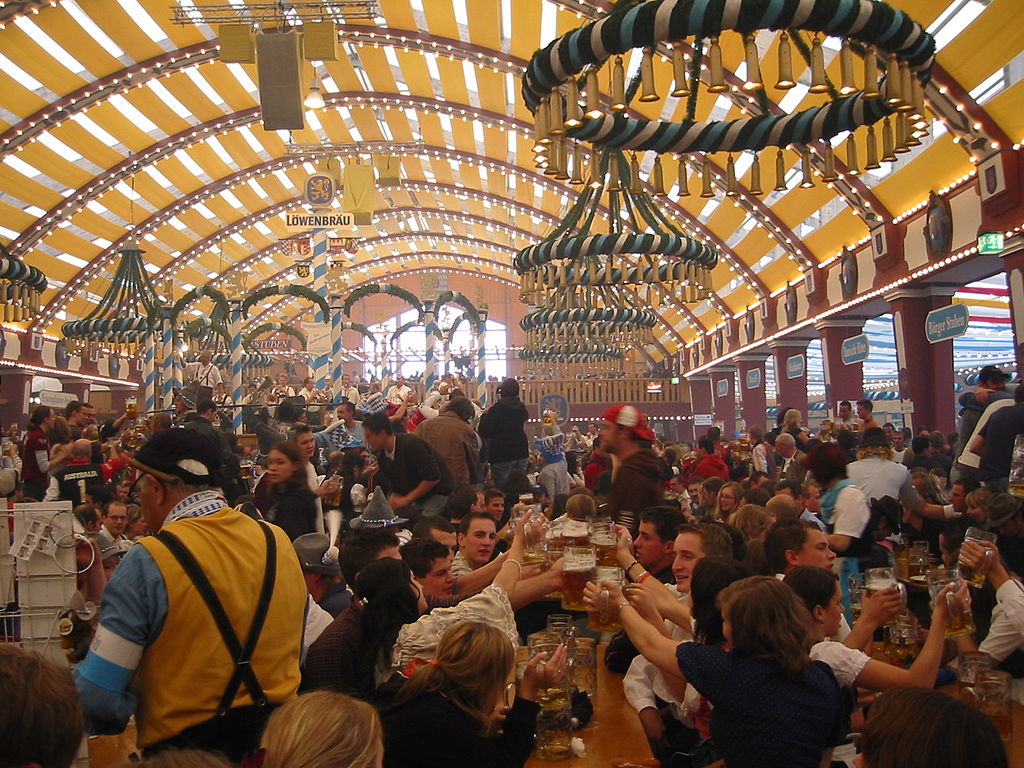Holidays and Festivals: Holiday Calendar

Calendar
| Holiday | 2024 | 2025 | 2026 | Affected |
| New Year’s Day | Jan. 1 | Jan. 1 | Jan. 1 | g, b, o, r |
| Epiphany | Jan. 6 | Jan. 6 | Jan. 6 | regional |
| Good Friday | March 29 | April 18 | April 3 | g, b, o, r |
| Easter Sunday | March 31 | April 20 | April 5 | g, b, o, r |
| Easter Monday | April 1 | April 21 | April 6 | g, b, o, r |
| Labor Day | May 1 | May 1 | May 1 | g, b, o, r |
| Ascension Day | May 9 | May 29 | May 14 | g, b, o, r |
| Whit Sunday (Pentecost) | May 19 | June 8 | May 24 | g, b, o, r |
| Whit Monday | May 20 | June 9 | May 25 | g, b, o, r |
| Corpus Christi | May 30 | June 19 | June 4 | g, b, o, r (regional) |
| Assumption Day | Aug. 15 | Aug. 15 | Aug. 15 | g, b, o, r (regional) |
| Day of German Unity | Oct. 3 | Oct. 3 | Oct. 3 | g, b, o, r |
| Reformation Day | Oct. 31 | Oct. 31 | Oct. 31 | g, b, o, r (regional) |
| All Saints’ Day (Hallowmas) | Nov. 1 | Nov. 1 | Nov. 1 | g, b, o, r (regional) |
| Repentance Day | Nov. 20 | Nov. 19 | Nov. 18 | g, b, o, r (regional) |
| Christmas Day | Dec. 25 | Dec. 25 | Dec. 25 | g, b, o, r |
| Boxing Day/St. Stephen's Day | Dec. 26 | Dec. 26 | Dec. 26 | g, b, o, r |
Note: Holidays that fall on weekends are often moved to the following Monday.
Key:
g = government offices and institutions
b = banks and financial institutions
o = non-retail businesses/offices
r = retail businesses
Special Seasons
Oktoberfest
Date(s):
Begins in late September and always ends the first Sunday of October
Closures:
None
Description:
Commemorates the marriage of Crown Prince Ludwig and Princess Therese of Saxe-Hildburghausen.
Background:
Oktoberfest started in 1810 when the Crown Prince Ludwig (Later King Ludwig I) married Princess Therese of Saxony. In celebration of the union, the people held a party in a large field just outside the city. The celebration became so popular that it became an annual event. The Oktoberfest was from its inception held at Theresienwiese or "Theresa’s Meadow." The main event of the celebration at the time was horse racing. It was only in 1960, when the horse racing stopped, that beer became the central theme of the festival.
How Celebrated:
Oktoberfest is regarded as the "Largest People’s Fair in the World" with about 6 million locals and tourists taking part. The event takes place on the 42-hectare Theresienwiese where large tents are setup to hold the huge turnout. The traditional twelve-gun salute marks the opening of the festival. The current mayor of Munich taps the first keg of Oktoberfest beer at noon with cries of, "O'zapft is!" ("It’s tapped!"). The event tents fill up quickly, especially during the weekends, so it is best to go to the festival early. Today, there are 14 main tents at Oktoberfest, each with its own theme, beer, and menu. These tents are semi-permanent structures occupied only during the event. Only six breweries supply beer to the event, and so locals refer to them as "The Big Six." For most people, the Oktoberfest is "all about the beer," especially because a special kind of beer is brewed during the festival. It is stronger and darker in taste than regular beer, and contains a higher alcohol content. But the festival’s highlights are not solely centered on the beer. Apart from the many enormous beer tents, there also is music, food stands, carnival rides, and games. Many families take their children to the festival on Tuesdays because it is family day, featuring reduced prices on food and carnival rides, and, of course, beer.
Copyright © 1993—2025 World Trade Press. All rights reserved.

 Germany
Germany 